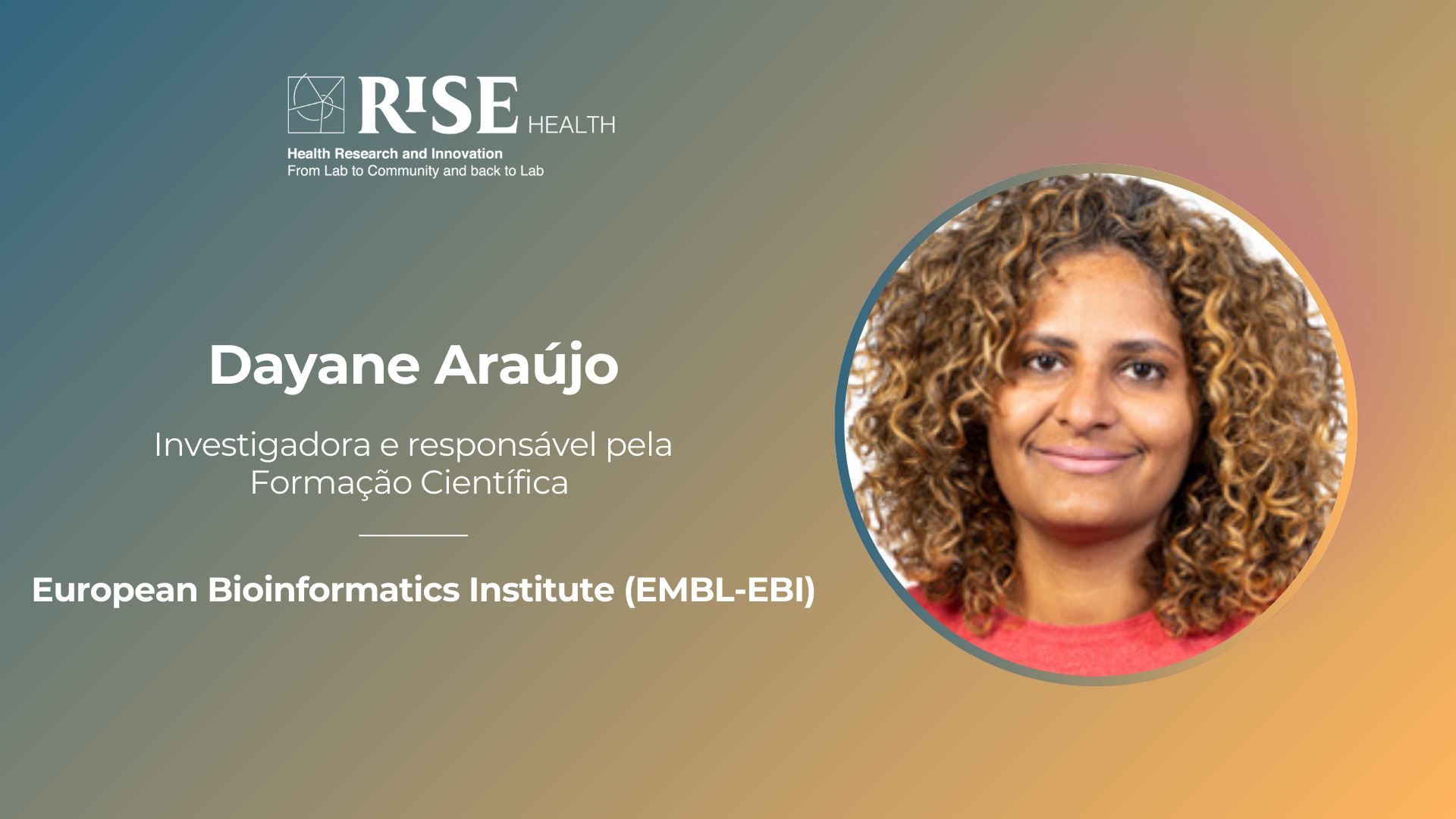News / Interview | Dayane Araújo
Researcher and head of scientific training at the European Bioinformatics Institute specialises in bioinformatics

Dayane Araújo has been a member of the European Bioinformatics Institute (EMBL-EBI) since 2021. As head of scientific training, she plays an active role in developing and delivering bioinformatics-centred courses for the life sciences community.
Recently, at the invitation of the Associate Laboratory RISE and with the support of the recently created RISE-Health R&D Unit, Dayane Araújo presented the conference ‘Introduction to EMBL-EBI: Data Resources and Training for Clinical Researchers’, during which students from the Degree in Digital Health and Biomedical Innovation (SauD InoB) at the Faculty of Medicine of the University of Porto (FMUP) had the opportunity to deepen their knowledge in areas such as bioinformatics, artificial intelligence and machine-learning.
What motivated you to switch from microbiology to bioinformatics and to develop courses in this area?
During my scientific research for my master’s degree and later my PhD, I worked mainly in wet laboratories. Towards the end of my PhD, I frequently used EMBL-EBI data resources such as UniProt and PDBe, something that sparked my curiosity about big data. However, it wasn’t until I started working at EMBL-EBI that I really realised how bioinformatics tools and databases allow researchers to extract valuable insights from large amounts of data. In addition, I discovered a passion for teaching, which led me to join the EMBL-EBI Training team. Currently, I focus on making bioinformatics accessible to a wide audience, ensuring that researchers develop the necessary skills to work effectively with biological data.
What are the main challenges in developing bioinformatics courses for diverse audiences within the life sciences community?
One of the biggest challenges is dealing with the different levels of experience of the participants. Some are inexperienced in using computer tools, while others have advanced skills. Finding a balance to ensure that everyone benefits from the course requires careful design, interactive teaching strategies and different levels of involvement. Another challenge is to ensure that the training is accessible and inclusive.
In your opinion, how important is bioinformatics training for life sciences researchers today?
Bioinformatics has become an essential part of life sciences research. With the increasing availability of data – made possible by EMBL-EBI’s data resources – researchers are looking to acquire computational skills to analyse and interpret results effectively. Without these skills, they may struggle to keep up with the latest advances and to exploit the potential of big data in the life sciences.
How important is it for research organisations like RISE to integrate multiple areas of knowledge and research?
Interdisciplinary collaborations accelerate discoveries and ensure that research is translational and impactful. For example, the integration of genomics, bioinformatics and clinical research has led to major advances in personalised therapies, allowing for more precise and effective treatments.
In cancer research, wet labs have traditionally received most of the funding and recognition, while bioinformatics and computational biology have often been underfunded and viewed with scepticism. This has resulted in fewer researchers specialising in bioinformatics, despite its growing importance. Do you think this imbalance in funding and scepticism are related? How can we bridge this gap to ensure that bioinformatics is better integrated and valued in translational cancer research?
Yes. Historically, experimental biology has been the mainstay of biomedical research, while computational approaches have often been considered ancillary. However, with the growth of large-scale omics data and artificial intelligence-based analysis, bioinformatics is no longer optional – it has become essential.
Today, research institutes (both in academia and industry) are trying to fill these gaps by increasing the data literacy of their researchers and collaborators. I believe that expanding bioinformatics training and promoting good data management and sharing practices will empower researchers to use computational approaches with more confidence. Even for those who don’t work directly in the field, these skills foster more effective communication with bioinformaticians and computational biologists, improving collaboration and research results.